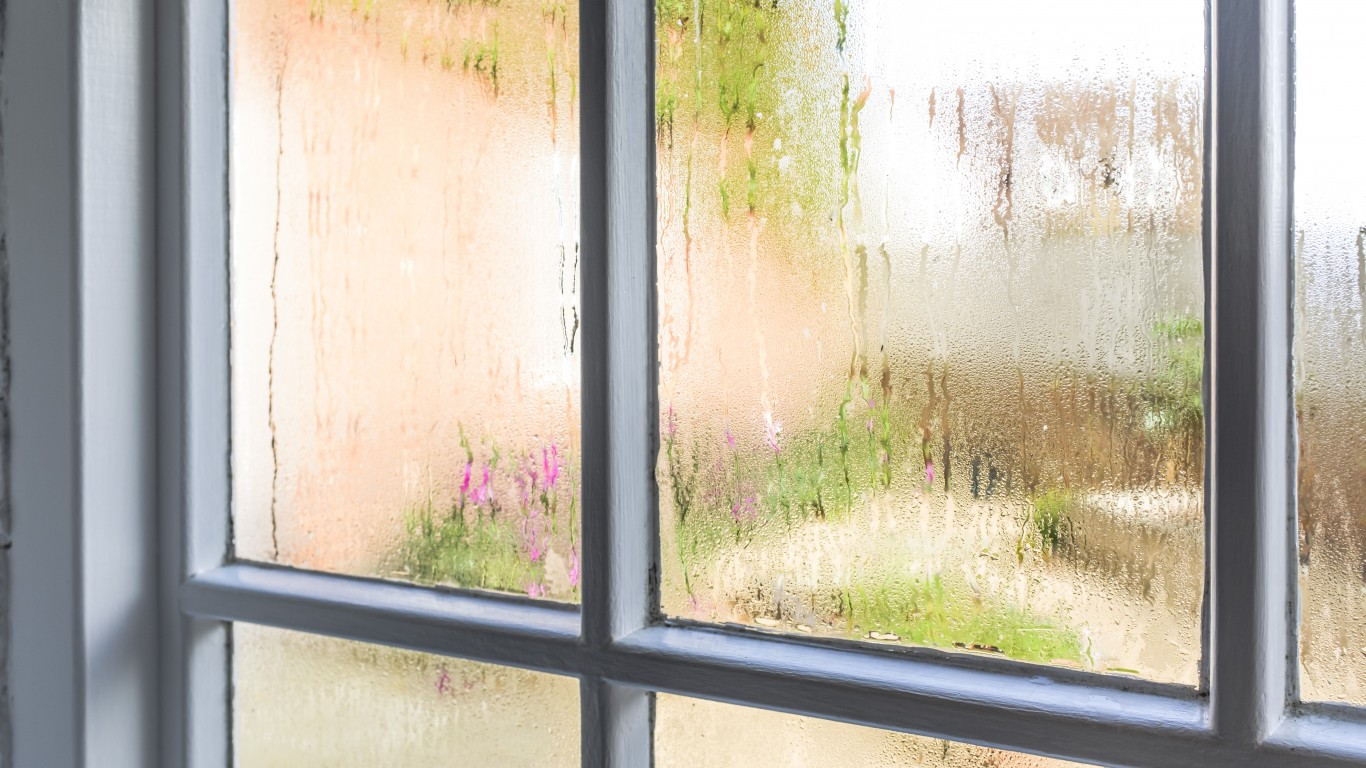
6. Keep the humidity at the right level
The change in seasons means a change in humidity in your home, which can cause discomfort, but also can be bad for your health. Because cold air holds less moisture and is further dried out by heating, winter air is dry, causing chapped skin and lips, dry fly-away hair, and, more seriously, respiratory problems, such as bronchitis, sinusitis, nosebleeds, dehydration, and asthma.
Hot damp air in summer has its own discomforts and health implications. Sweat provides a cooling function in hot weather, but if the air is full of moisture, sweat will not evaporate as easily. From a health perspective, humid air promotes the growth of mold and mildew, and can concentrate toxic volatile organic compounds (VOCs). Even in the absence of an updated HVAC system that monitors and controls moisture in the air, you can still bring humidity to comfortable levels. In the winter, humidifiers will certainly help, as will simply placing containers of water around the house. In the summer, use a dehumidifier, and take advantage of breezes to help remove VOCs by opening the windows.
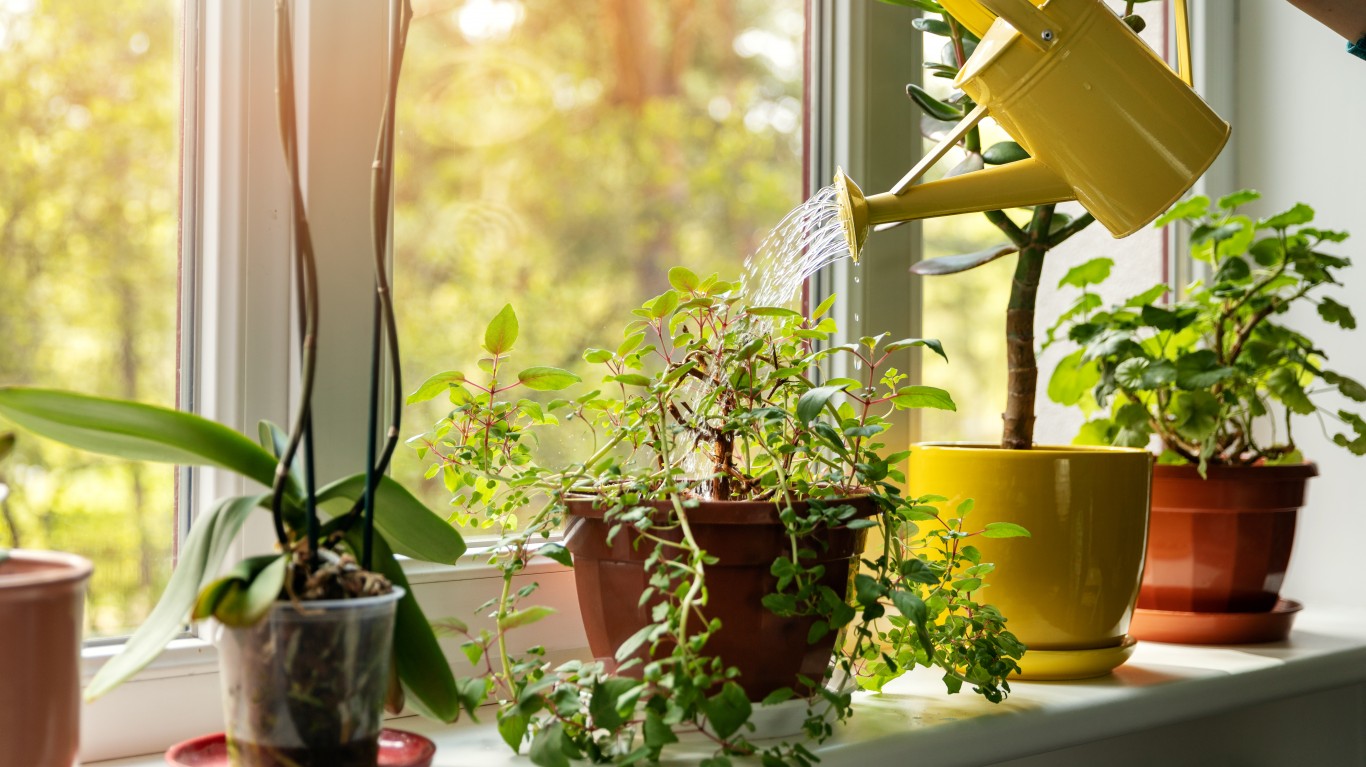
7. Get plants
Though it may take a large number of plants to be as effective as an air purifier, studies have shown that the roots and soil of indoor plants can seriously reduce the amount of VOCs in the air of your home. Recommended plants include certain palms, Boston ferns, rubber trees, spider plants, and ficus trees.
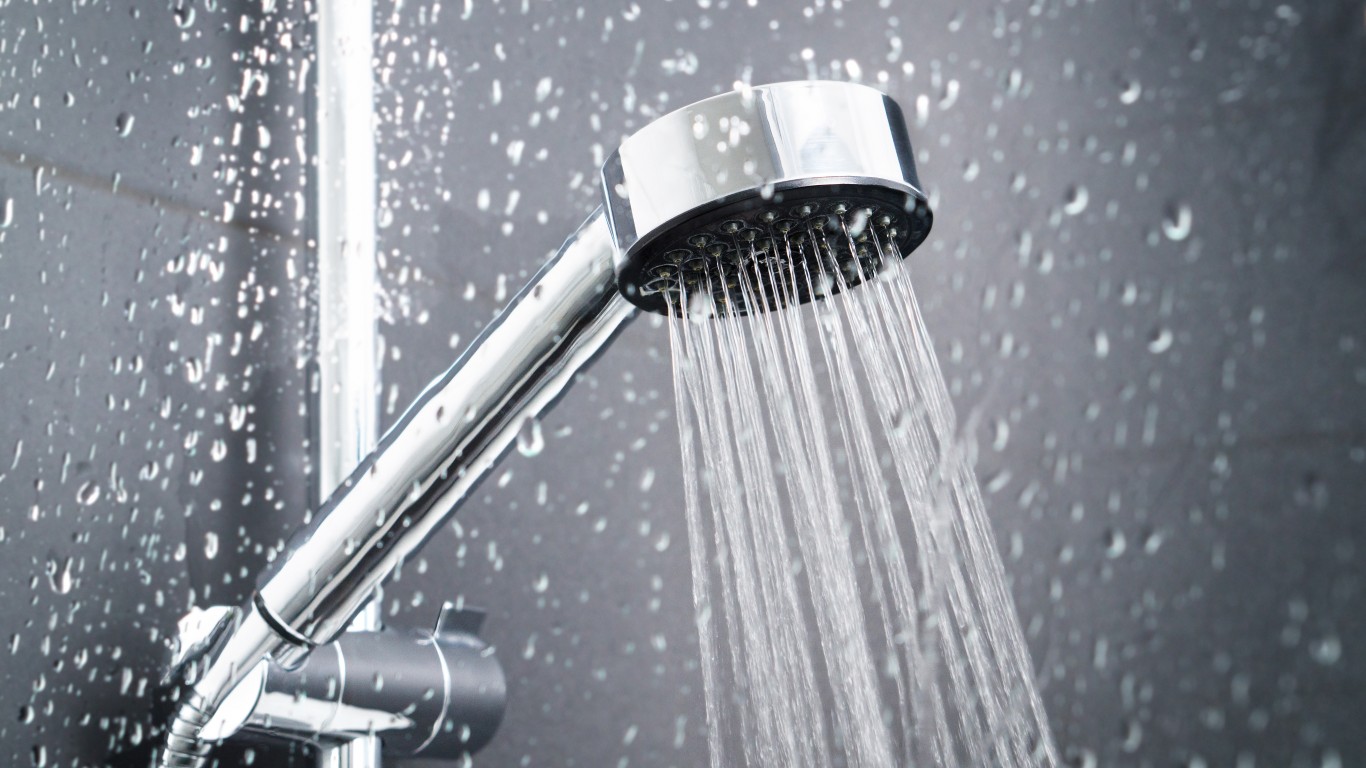
8. Use the bathroom fan
Bathroom air is humid. Hot water from taking showers increases the humidity in the air and leaves bathroom surfaces damp, creating an ideal environment for the growth of mold, mildew, and other microorganisms that can affect your health. Bathroom fans are designed to move the moisture to the outdoors, and help evaporate moisture left on mirrors, shower walls, and other surfaces.
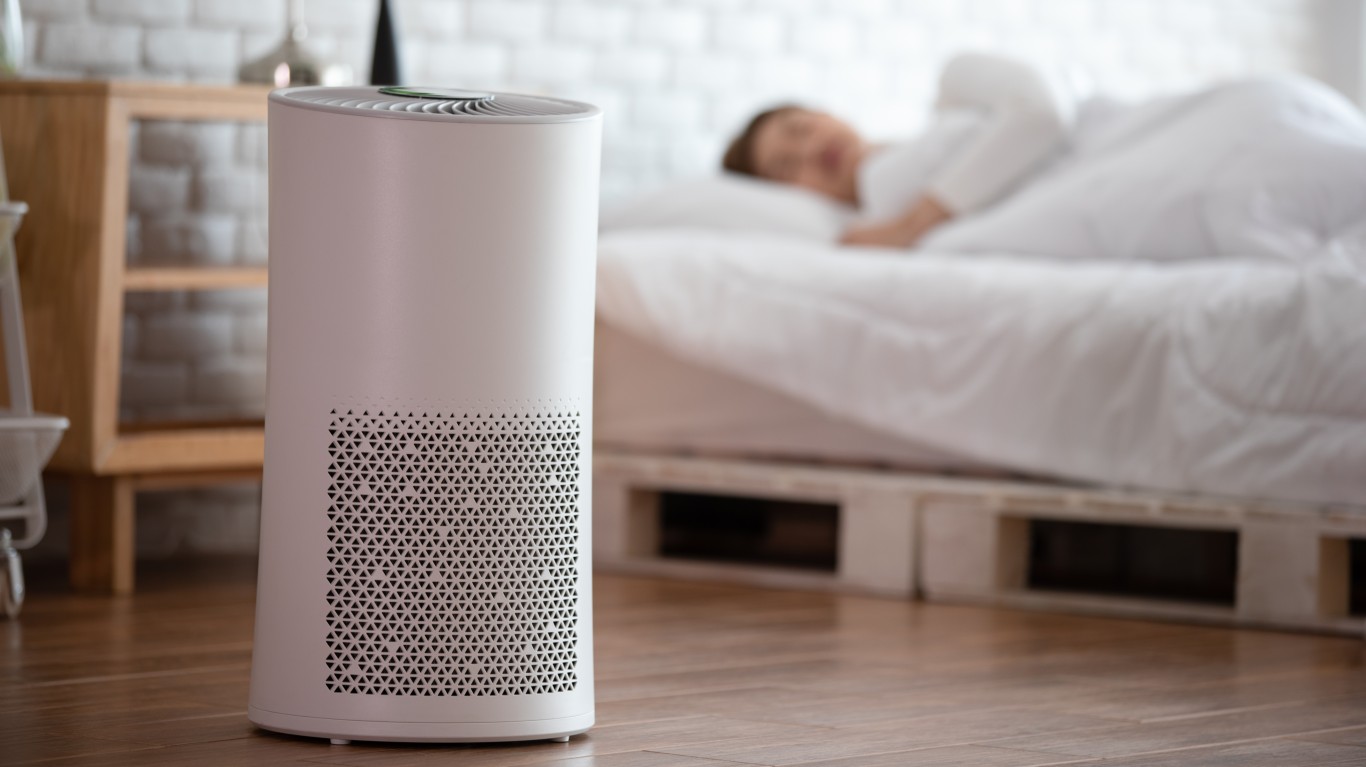
9. Buy an air purifier
Air purifiers offer the largest benefits to allergy victims by removing pollen and pet dander, though, in the absence of pets or open windows allowing for the inflow of pollen, their value in aiding health is not universally accepted. Cheaper models with flimsy filters are probably not useful at all; models with HEPA or other expensive filters are better, provided that filters are changed regularly. Purifiers are generally not needed if your home has a modern heating and cooling system and the air filters are changed as needed (see No. 1).
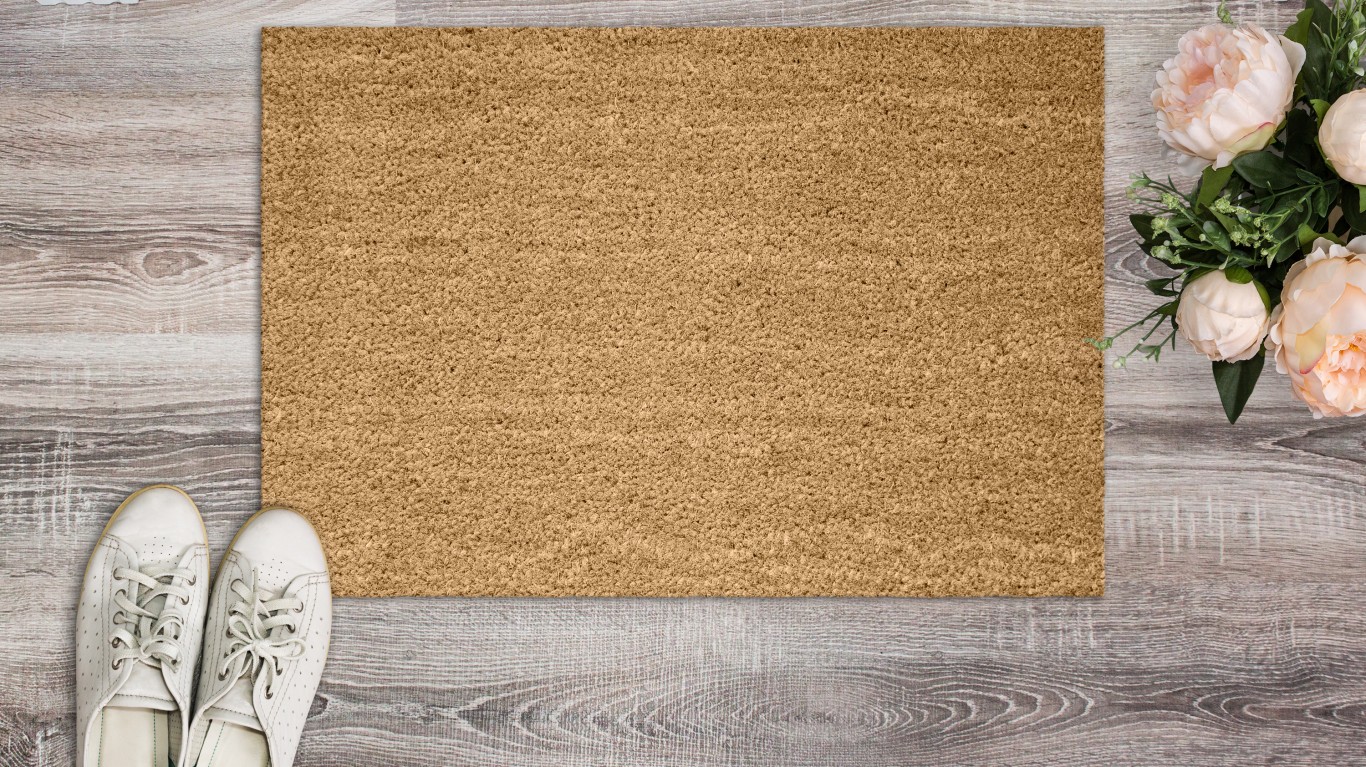
10. Take off your shoes at the door
The debris that comes into the house on the soles of your shoes is not just making your floors and carpets dirty, it may actually cause illness. Dirt, animal poop, and even leaves on your shoe bottoms can harbor bacteria. Researchers at the University of Houston found that 40% of the shoes they studied carried the C. diff bacteria, which can cause an intestinal infection that leads to colitis and is antibiotic resistant, making it difficult to treat. University of Arizona scientists found shoes contaminated with E. coli, a pathogen which can cause stomach and intestinal problems; and Klebsiella pneumoniae, a bacterium that damages the lungs and leads to a deadly type of pneumonia.






